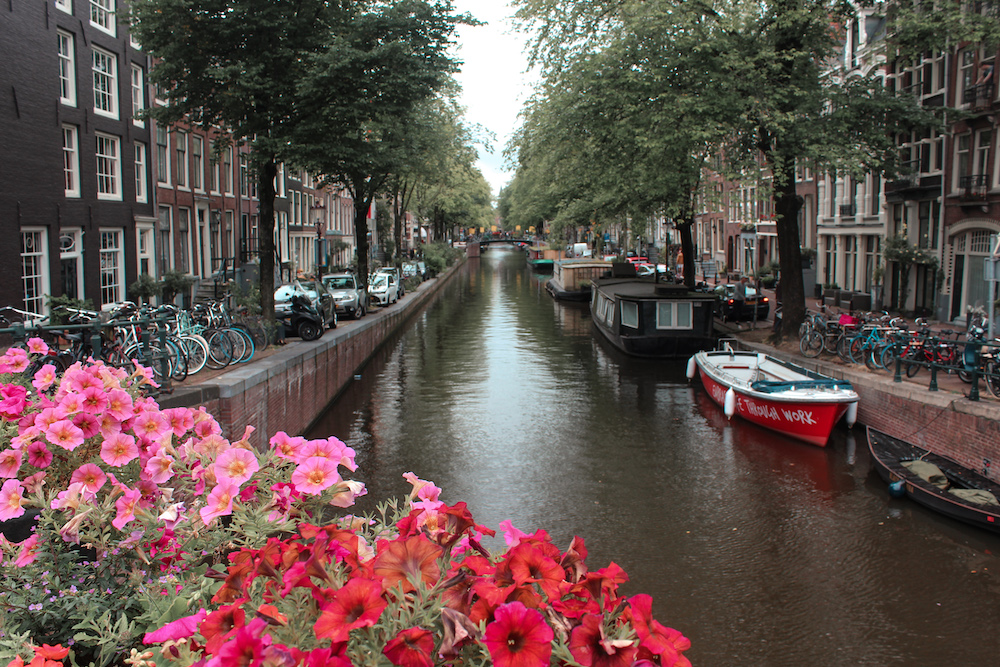
How to Avoid Pickpockets in Europe
Looking for tips on how to avoid pickpockets in Europe?
Read on for what to look out for and tips for outsmarting the thieves!
If you’re traveling to Europe soon, you’ve probably heard about the danger of pickpocketing. Most European destinations are very safe overall, but pickpocketing is a big issue in many cities.
Here are some pickpocketing hotspots in Europe:
- Paris, France
- Rome, Italy
- Barcelona, Spain
- London, United Kingdom
- Athens, Greece
- Budapest, Hungary
- Florence, Italy
- Amsterdam, Netherlands
- Madrid, Spain
- Prague, Czech Republic
Nothing can ruin your trip faster than having your money, passport, or other valuables stolen from you by a pickpocket, so it’s important to be prepared and know what to look out for.
Here are my top tips for how to avoid pickpockets in Europe…
1. Know where pickpockets operate.
The cities listed above are some of the biggest hotspots for pickpockets in Europe, but it can happen anywhere, including in other cities or small towns. Even somewhere super safe like Switzerland!
However, most pickpockets operate in specific settings that are more conducive to discreetly picking your pocket. Typically, these are locations that are crowded, noisy, and have a lot of activity.
For example, public transportation is a major target for pickpockets. Whether it’s the Metro in Paris or the Tube in London, thieves will use the crowds for cover as they pick your pocket, then slip off the train or move to a different part of the platform before you even notice that something is missing.
You should also be wary when you’re in busy tourist areas. For example, the Trevi Fountain in Rome, the Eiffel Tower in Paris, and Las Ramblas in Barcelona are all crawling with pickpockets.
Crowded street markets and festivals are another prime target for pickpockets. Thieves can easily bump against you in the crowd and rob you, then melt into the crowd again within seconds.
Pickpockets also target outdoor bars and restaurants. Sidewalk cafes and al fresco dining are very popular in Europe, and pickpockets may try to steal from you while you’re enjoying a meal.

2. Always stay alert.
When you’re in any of the scenarios described above, and just when you’re walking around in general, you should always stay alert to your surroundings. Pickpockets are much more likely to go for someone who’s an easy target and is staring down at their phone not paying attention to what’s going on.
You might think a pickpocket would be someone who looks “suspicious” but many pickpockets dress well and blend in completely. Pickpockets can even be children or teenagers — that’s actually pretty common.
The more alert you are to your surroundings, the less likely you are to be pickpocketed, by making yourself a less appealing target for pickpockets, and being more likely to notice if someone tries anything.
3. Be wary of strange distractions.
Another tip for avoiding pickpockets is to be wary of any strange distractions. Many of these are actually common pickpocketing tactics, and being aware of them helps you look out for them.
A common tactic in Paris and some other cities is the fake petition scam. You’ll suddenly be swarmed by several people with clipboards trying to get you to sign a bogus petition while one of them steals from you.
Another is the sandwiching tactic in which one person comes up and bumps into you on the street and starts talking, trying to distract you, while their accomplice sandwiches you on the other side and picks your pocket. This happened to my brother in Barcelona with two teenage boys who approached him and his friends, and he didn’t even realize his watch had been stolen right off his wrist until minutes later!
You should also be wary when a stranger comes up and acts overly helpful, especially in train stations or other busy places. My dad was pickpocketed in the Paris Metro this way when my brother and I were children by a man who offered to help my parents with our luggage. My mom was suspicious, but my dad fell for it and only realized later that his wallet had disappeared from his back pocket.
Basically, any time someone comes up to you and starts trying to engage with you on the street or starts getting in your personal space, you should be extra vigilant and quickly get out of there.

4. For women: Have a purse that zips.
For women, make sure you always carry a purse that zips when you travel. Open purses are a lot easier to steal from than bags with a zipper. Some people will recommend you always carry a crossbody bag because it’s even more secure, but I haven’t personally had any issues with my Longchamp shoulder bag.
I’ve been traveling with this style of purse for over a decade because they are a good size and can fold up making them easy to pack. I always keep my bag zipped shut with the zipper side facing forward, and I’ll keep a hand on my bag when I’m in a particularly crowded area like a train station.
It can also be a good idea to have your most valuable items (like your wallet, passport, and cellphone) in a small fanny pack/crossbody bag kept close to your body. I like the Lululemon belt bag.
5. For men: Don’t keep your wallet in your back pocket.
As the earlier story about my dad on the Paris Metro illustrated, you should never keep your wallet in your back pocket. It’s way too easy for pickpockets to lift your wallet from, and you won’t feel a thing.
I know that most men don’t want to carry a bag, but I would really recommend getting a small fanny pack/crossbody bag or else a money belt you can wear under your clothes. Both of these options are much safer for protecting your wallet, passport, and cellphone from pickpockets.

6. Try to blend in with the locals.
Pickpockets often target people who are very obviously foreign tourists. If you’re walking around obliviously wearing flip-flops, shorts, and a t-shirt with an American university name on it while speaking loudly in English with your travel companions, you might seem like an easy target to pickpockets.
If you can dress to blend in more, you’re less likely to catch their attention.
Another way to blend in is to walk with a purpose instead of wandering around distractedly, looking at a map on your phone. If you seem clueless, pickpockets might also see you as a good target.
Even if you are a little lost, try not to show it. Instead, wait until you can duck away somewhere more private (like into a nearby shop or hotel lobby) in order to regroup and get your bearings.
7. Don’t leave your bag out.
I mentioned that pickpockets commonly target outdoor restaurants and bars. One of the biggest mistakes you can make is hanging your bag over the back of your chair in this setting. This makes you a major target for bag-snatching. Instead, keep your bag in your lap or between your feet on the floor.
The same goes for when you’re on a train or bus. Don’t leave your bag in the empty seat next to you while you’re on your phone. Keep it in your lap and have your hands on it at all times.

8. Don’t leave your phone on the table when dining outside.
Another thing to avoid when dining outside in Europe? Leaving your phone on the table! You might not think twice about doing it, but it’s risky because some thieves will come right up and snatch it.
If they want to be more discreet, they might come up to your table trying to sell you something, offering you a rose, or trying to strike up a random conversation in order to distract you and steal your phone.
9. Don’t keep much cash on you.
One of the worst things you can have on you is too much cash. If you get pickpocketed and they steal your cards, you can call the bank and have the cards canceled easily. Even if your phone is stolen, that is something reimbursable with most travel insurance plans. But cash? It’s totally lost.
For most destinations in Europe, you don’t even need that much cash in the first place. Most places in major European cities accept card payments, and you can get by without ever needing cash.
I would personally never carry more than $100 in the local currency on my person.

10. Mind your valuables.
I mentioned this in a tip above for women, but you might want to have a small fanny pack/crossbody bag to keep your most important items (wallet, passport, and cellphone) in and have less valuable items in your purse. That way, even if someone managed to steal from your purse, it wouldn’t be as bad.
You should also always make sure you have access to a backup form of money. When I travel, I only bring one debit card and one credit card with me when I’m out and about. I leave my other debit card and credit cards in the hotel room. If you did get pickpocketed, you wouldn’t be stuck without a way to access money.
Finally, be careful about flashing your valuables when you’re out in public. I don’t mean that you should never take out your phone or wallet, but just be mindful about when and where you’re doing it.
How to Avoid Pickpockets in Europe
This guide showed you how to avoid pickpockets in Europe.
Honestly, a lot of it just comes down to common sense and being vigilant. Do you need to be hyper-suspicious and on alert at all times? No. But you should always maintain a level of awareness of your surroundings. When you’re in a particularly busy area or crowded setting, keep a tighter hold on your bag.
Be wary of any stranger who seems too friendly or helpful, or anyone who invades your personal space. Knowing the common pickpocketing tactics will help you spot them and avoid them.
Related Guides:



